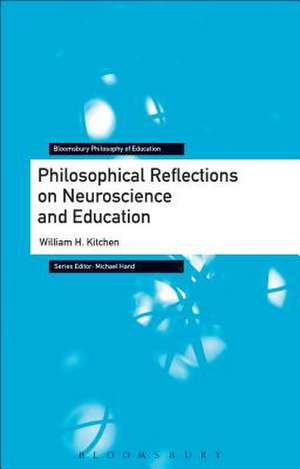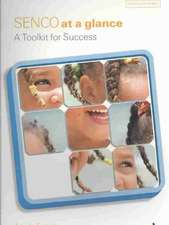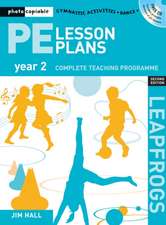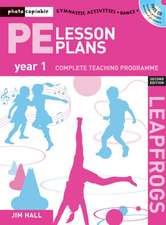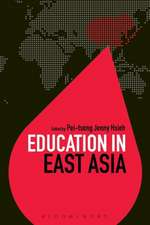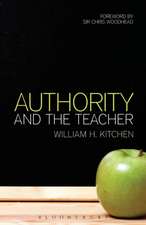Philosophical Reflections on Neuroscience and Education: Bloomsbury Philosophy of Education
Autor William H. Kitchenen Limba Engleză Paperback – 29 mai 2019
| Toate formatele și edițiile | Preț | Express |
|---|---|---|
| Paperback (1) | 230.98 lei 6-8 săpt. | |
| Bloomsbury Publishing – 29 mai 2019 | 230.98 lei 6-8 săpt. | |
| Hardback (1) | 773.00 lei 6-8 săpt. | |
| Bloomsbury Publishing – 15 noi 2017 | 773.00 lei 6-8 săpt. |
Preț: 230.98 lei
Preț vechi: 265.35 lei
-13% Nou
Puncte Express: 346
Preț estimativ în valută:
44.22€ • 45.96$ • 36.66£
44.22€ • 45.96$ • 36.66£
Carte tipărită la comandă
Livrare economică 06-20 februarie 25
Preluare comenzi: 021 569.72.76
Specificații
ISBN-13: 9781350110922
ISBN-10: 1350110922
Pagini: 264
Dimensiuni: 156 x 234 mm
Greutate: 0.37 kg
Editura: Bloomsbury Publishing
Colecția Bloomsbury Academic
Seria Bloomsbury Philosophy of Education
Locul publicării:London, United Kingdom
ISBN-10: 1350110922
Pagini: 264
Dimensiuni: 156 x 234 mm
Greutate: 0.37 kg
Editura: Bloomsbury Publishing
Colecția Bloomsbury Academic
Seria Bloomsbury Philosophy of Education
Locul publicării:London, United Kingdom
Caracteristici
Analyses educational policy and practice to critique the use of incoherent concepts, borrowed from neuroscience, and sold as credible and cogent 'science of learning' facts
Notă biografică
William H. Kitchen is a freelance educational researcher. He currently teaches mathematics at post-primary level in Northern Ireland, and has previously authored Authority and the Teacher (2014) with Bloomsbury.
Cuprins
Series Editor ForewordPrefaceAcknowledgementsWittgentsteinian AbbreviationsPart I: An Introduction to Neuroscience and Education1. Neuroscience, Brain Based Learning and Education 2. Collaborative Reports in Neuroscience and Education3. A Local Paradigmatic Example, Founded on an International Research PhenomenonPart II: The Philosophical Critique of Neuroeducation and Brain-Based Learning: Mereology, Asymmetry and Irreducible Uncertainty4. The Mereological Fallacy5. First-Person/Third-Person Asymmetry 6. Neuroscience and Irreducible UncertaintyPart III: The Philosophy of the Inner and the Outer: Neuroscience, Cartesianism and Mind-Brain Identity Theory7. Inner and Outer: The Epistemology of the Mind8. Inner and Outer: The Challenges of Crypto-Cartesianism, Materialism and ReductionismPart IV: Intrinsic and Relational Models of Education: Unifying the Philosophy of Mind and the Philosophy of Quantum Physics9. Intrinsic and Relational Models of Education10. Education, Psychology and Physics11. Bohr's Philosophy of Physics and its Application to Psychology and EducationPart V: The Wittgenstein-Bohr Model of Education12. A New Educational Philosophy Based on Bohr's Interpretation of Quantum Physics13. Conclusions: Wittgenstein-Bohr Model of EducationConcluding RemarksBibliography Index
Recenzii
This book is invaluable as an antidote to the current dangerous emphasis on brain-based education, with its seductive rhetoric. It is a relief to read Kitchen's thorough, thought-provoking and lucid scrutiny of the phenomenon! The book should be read by anyone committed to the deflation of myths that will otherwise affect millions of pupils, as well as teachers and educators at all levels.
